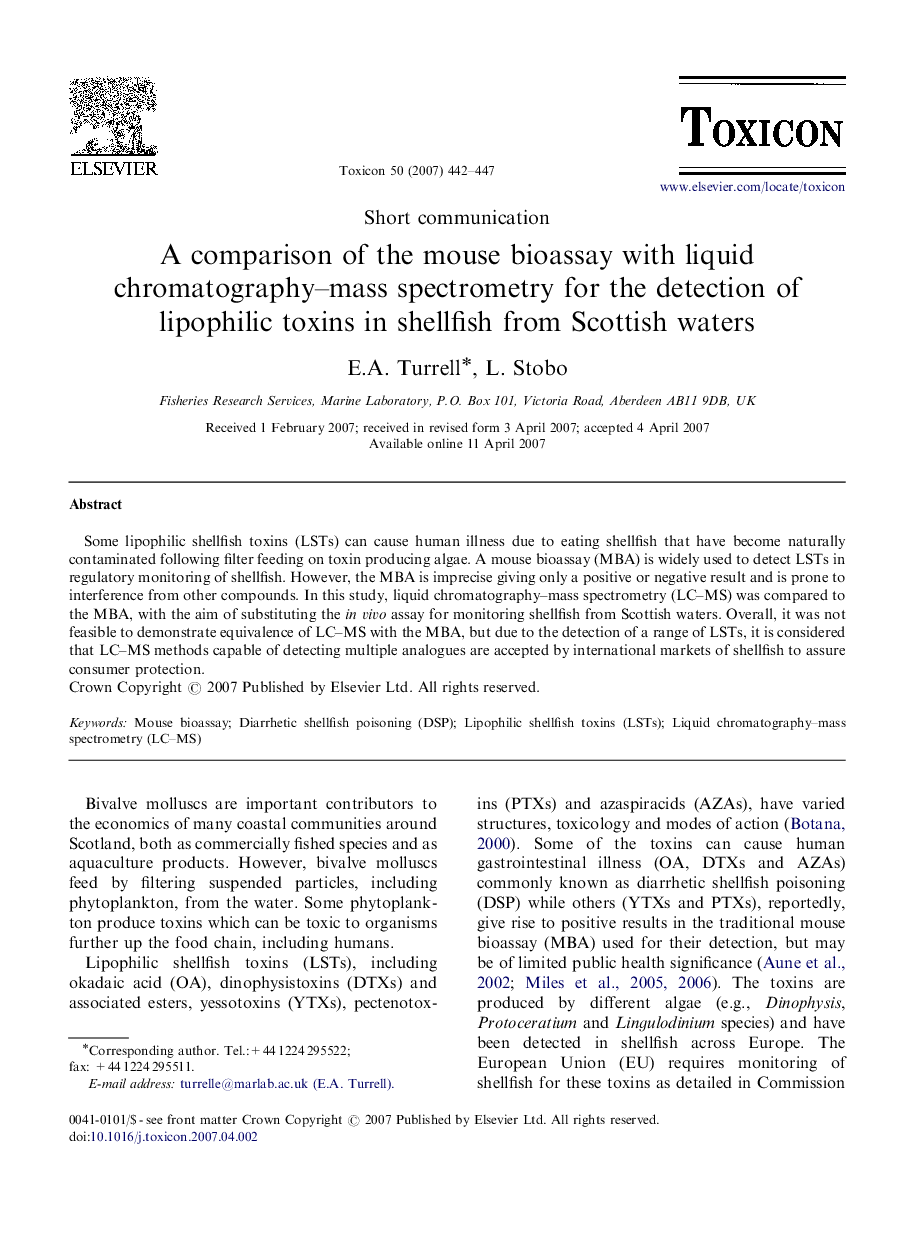| Article ID | Journal | Published Year | Pages | File Type |
|---|---|---|---|---|
| 2066037 | Toxicon | 2007 | 6 Pages |
Some lipophilic shellfish toxins (LSTs) can cause human illness due to eating shellfish that have become naturally contaminated following filter feeding on toxin producing algae. A mouse bioassay (MBA) is widely used to detect LSTs in regulatory monitoring of shellfish. However, the MBA is imprecise giving only a positive or negative result and is prone to interference from other compounds. In this study, liquid chromatography–mass spectrometry (LC–MS) was compared to the MBA, with the aim of substituting the in vivo assay for monitoring shellfish from Scottish waters. Overall, it was not feasible to demonstrate equivalence of LC–MS with the MBA, but due to the detection of a range of LSTs, it is considered that LC–MS methods capable of detecting multiple analogues are accepted by international markets of shellfish to assure consumer protection.
